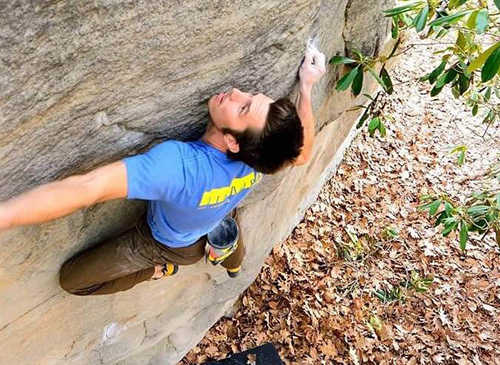TZero is working with breweries as far afield as Alaska and Quebec, California and Florida, to help brewers more easily and precisely oversee their brews via the power of sensor technology.
Just because something’s been done the same way for hundreds of years, that doesn’t always make it the best way to do something. Take, for example, brewing.
Despite years of industrial advancement in a range of other areas, the foundations of brewing have remained human-reliant, requiring the brewmaster to physically take manual samples of a brew once or twice a day.
“With brewing, they’ve done the same thing for the past hundred years. It’s very archaic,” says Stephen Wells, co-founder of TZero along with brother Nicholas Wells and friend Eli Hughes. “The process starts with sugar water. The brewer adds yeast. The yeast eats the sugar and produces CO2 and alcohol… Today, the way brewers measure if their beers are moving in the right direction or not, is they’ll take measurements maybe once or twice a day, to watch the density of the beer drop, and that indicates that the alcohol is being formed and sugar is being reduced. That process is done in wine, cider, all kinds of things, but beer was what my brother Nick and I were interested in and we said that there’s got to be a better way.”
And now there is. Enter TZero and its founders.
The Next Big Sensor Company is Emerging in Happy Valley
Stephen and Nicholas grew up in Altoona and they both, along with Hughes, attended Penn State, working in the Applied Research Lab, as so many industry movers and shakers do. Stephen and Hughes were a part of Penn State’s world-renowned acoustics program, Stephen specializing in structural acoustics and working for Boeing on launch vehicles for a time.
The three considered starting a company together for a while, but when Stephen and Nicholas began homebrewing as a hobby, the pieces fell into place.
“With our background in acoustics, we thought we could use acoustics and maybe ultrasound to measure brewing data. Turns out you can and that’s what we formed the company around,” Stephen explains. “About a month ago, we launched our first product: a sensor we made that fits right into a tank that most breweries already have, these large stainless steel fermenters. It uses ultrasound and it measures what’s going on in the beer and it connects through a cellular gateway. We use AT&T and Verizon.
“It beams the data to a dashboard, so the owner and brewer can look on their phone and see all of those measurements in real time. These measurements allow the owner and brewer to know exactly when the beer starts fermenting, reaches peak fermentation, and reaches terminal fermentation. Now, they can turn their tanks faster and make more beer using less resources.
“It also gives brewers peace of mind, and they can go home on the weekends, and pull the data up on their phones and know exactly what’s going on, instead of driving in on the weekends to take samples every day.”
Now, TZero is working with breweries as far afield as Alaska and Quebec, California and Florida, to help brewers more easily and precisely oversee their brews via the power of sensor technology.
But no matter where in the world you find those TZero sensors, they can all be traced — every last bit of them — to Happy Valley.
Community-Made Technology
Sure, the research and education required to bring TZero to life were attained in Happy Valley, but the TZero founders also source all of their hardware from the area as well — not to mention mentorship from other sensor companies and their founders, such as State College’s KCF Technologies and founder Jeremy Frank.
“Everything actually gets made in Centre County, which is something we’re excited about,” says Stephen. “There’s a lot of expertise here. You have Homeland Manufacturing, you have PKI, you have Metal Integrity. We had everything we needed here to make prototypes, and they could scale with us. It doesn’t get much better than that.”
And TZero still works with Homeland Manufacturing, PKI and Metal Integrity to create their sensors today.
What’s Next?
“I think the technology we have could really disrupt the whole brewing industry. Brewers don’t need to do what they did 100 years ago. There’s a better way now,” says Stephen.
However, TZero isn’t only perfectly positioned to disrupt the entire brewing industry. Its technology can likewise be applied to other fermented beverages, such as wine and cider, as well as fermented foods. Other liquids involved in the brewing process are also contenders for automation, such as the glycol mixture used to cool brewing tanks.
“We’re starting to see other applications for measuring the acoustics of the fluid and what information we can pull,” Stephen says. “We’re also working on a temperature controller. The only way to really affect how the yeast performs in any type of brewing is through temperature. We have a temperature controller coming out that will talk to our sensors that will allow us to automate the fermentation process, so if you want to ferment this batch like the last batch, we can do it.”
But beyond the ground-breaking tech and virtual dashboard allowing brewers real-time looks at their brewing processes, there’s one other perk TZero offers its clients — price.
“There are sensors that cost tens of thousands of dollars to measure the acoustics of a fluid, but we’ve been the first to apply the mathematics and apply the model to say, hey, if the fluid’s doing this, it’s probably at this stage in the fermentation process,” notes Stephen. “We think we have a solution that, for the craft industry, is actually attainable. It fits into the budget they would have.”
Interested in learning more about TZero’s technologies? Check out the company’s website at tzerobrew.com.






